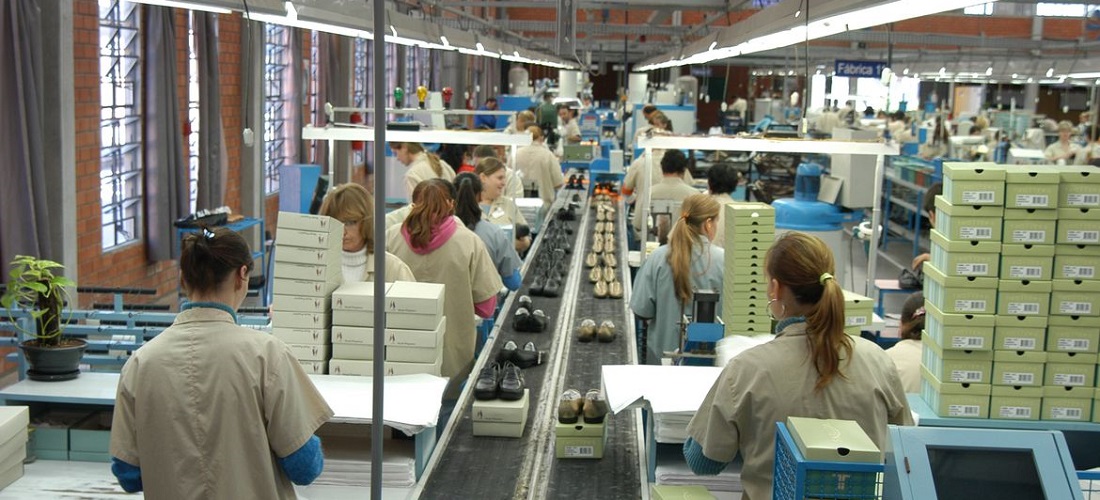
Footwear Industry File Action at the Supreme Court Against Exemption of Import Duties
Nov, 09, 2023 Posted by Gabriel MalheirosWeek 202342
The Brazilian Footwear Industry Association (Abicalçados) and the Brazilian Association of Companies of Components for Leather, Footwear and Manufactured Goods (Assintecal), in the legitimate interest of protecting their industries, have filed a direct action of unconstitutionality (ADI 7503) with a request for a precautionary measure at the Supreme Federal Court (STF) against the exemption from import duties for international shipments of digital platforms.
According to the action, under the rapporteurship of Minister Cármen Lúcia, the exemption of the tax for imports “blatantly violates the Federal Constitution, in its formal aspect, as it was issued by an authority (Minister of Finance) absolutely incompetent to determine import duty rates.”
Haroldo Ferreira, the executive president of Abicalçados, emphasizes that Decree 612, in effect since last August, violates the constitutional principle of tax isonomy, as it favors imported products and trade carried out by foreign companies, to the detriment of national production and retail.
“Since this measure came into effect, we have been losing market share to products entering Brazil without any taxation. It is unfair competition because we pay cascading taxes,” evaluates the executive. Recently, Abicalçados released official data illustrating the impact of tax distortion. Between January and September, the sector produced 618.5 million pairs, 1.6% less than the accumulated amount last year. Meanwhile, apparent consumption, in the same period and comparison, grew by 1.9%, reaching 550.9 million pairs.
“With apparent consumption growing faster than production, it is obvious that imports are driving the increase in consumption at the expense of domestic production. We are exporting jobs!” Ferreira adds. The repercussions of unfair competition in favor of products sold by marketplaces also affect the sector’s employment figures. In September, according to the most recent data, the industry created only 391 jobs and has a negative balance of 333 positions in 2023. In the same month of the previous year, the sector had created over 4,000 jobs. “It is the worst result, excluding the atypical year of the pandemic in 2020, since the beginning of the historical series, started in 2000,” emphasizes Ferreira. Currently, the activity directly employs 296,000 people, 6.4% less than in the same period in 2022.
The chart below was developed with data from DataLiner, Datamar’s maritime intelligence service. It shows footwear imports into Brazil from January 2020 to September 2023.
Footwear Imports | Brazil | Jan 2020 – Sep 2023 | TEU
Source: DataLiner (click here to request a demo)
Impact on the Supply Chain
Assintecal’s superintendent, Silvana Dilly, points out that the regulation allowing the exemption of import duties also reflects on the supply chain of the national footwear sector. “The footwear production chain, from the supplier to the end of the retail, directly employs over a million people in Brazil. Assintecal filed this ADI with Abicalçados precisely because it understands that this unfair competition is destroying the Brazilian industry. If nothing is done, in the short term, we will continue to lose jobs. We are not against imports; on the contrary, but we are against unfair competition that expands Brazilian deindustrialization,” emphasizes the executive.
Awareness
According to the entities, it is necessary to raise awareness among the government and the population that the immediate gain of buying a cheaper product on these platforms can cost jobs. In addition to fueling unfair competition, devoid of the minimum tax isonomy, and jeopardizing the livelihoods of thousands of Brazilian families, the consumer who buys these shoes is supporting countries that, for the most part, do not respect human rights and the most basic concepts of sustainability. A survey by Abicalçados’ Market Intelligence indicates that the three main sources of footwear imports – China, Vietnam, and Indonesia – have ratified only 20 conventions of the International Labor Organization (ILO), while Brazil has ratified a hundred.
-
Grains
Aug, 22, 2022
0
China soybean imports from Brazil fall in July, U.S. imports up
-
Meat
Mar, 08, 2022
0
War increases meat-packing costs but also opens up space for exports
-
Ports and Terminals
Apr, 26, 2019
0
Santos records a 1.5% drop in cargo handling in Q1, 2019
-
Ports and Terminals
Jun, 05, 2023
0
Port of Luis Correia to ship iron ore extracted in Piauí state


